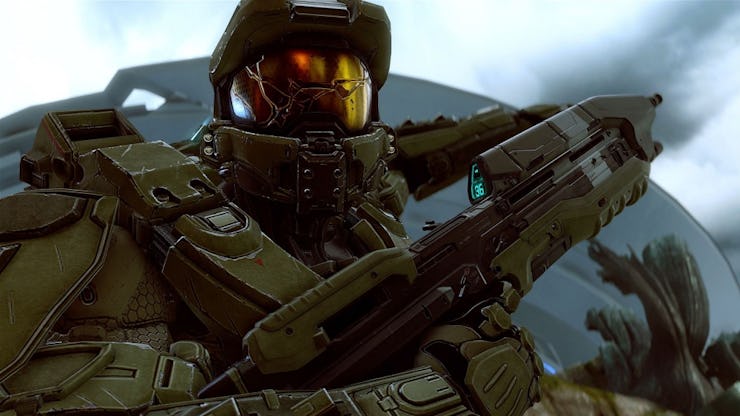What you need to know about Xbox Series X and S backward compatibility
Microsoft's next-gen consoles do this better than Sony's PlayStation 5.

Backward compatibility is a major feature for all next-generation consoles. While Microsoft has been very public about not abandoning support for Xbox One at the Xbox Series X and Series S launch, how exactly backward compatibility works on the next-gen Xbox systems is a little confusing.
Here’s everything you need to know about backward compatibility on Xbox’s next-gen consoles, including which systems are supported and the differences between the Series X and Series S.
Are Xbox Series X and S backward compatible with Xbox, Xbox 360, and Xbox One?
Unlike the PS5, which is only compatible with the PS4, the Xbox Series X and S are compatible with all previous Xbox systems. That means that many of your Xbox, Xbox 360, and Xbox One games work on Xbox Series X and S. If you own any titles for these systems digitally, they will automatically carry over when you log into your Microsoft account.
Xbox Series X and Xbox Series S are backward compatible with every Xbox console in some form.
Physically, you can put the disc in the Xbox Series X to claim and download the game. Microsoft claims that many games will even be enhanced for Xbox Series X and S, playing at higher frame rates and resolutions.
Which Xbox games are backward compatible with Xbox Series X and S?
When it comes to Xbox One backward compatibility, Xbox Head Phil Spencer confirmed in July 2020 on Xbox Wire, “It’s our intent for all Xbox One games that do not require Kinect to play on Xbox Series X at the launch of the console.” That means the vast majority of your titles will carry over, except for some Xbox Game Studios published games like Kinect Sports Rivals.
As for Xbox and Xbox 360 games, the list of backward compatible titles does get a little more restrictive, though over 600 games are still available. Microsoft has a website dedicated to saying what Xbox and Xbox 360 games work on Xbox One, and these should all carry over to Xbox Series X. Check out the full list of titles to see how many Xbox games in your library are supported.
How does backward compatibility work on Xbox Series S?
Those that opt to pick up the digital-only and slightly weaker Xbox Series S will have a different backward compatibility experience from those that have an Xbox Series X. Firstly, and most obviously, you cannot use the physical copies of Xbox, Xbox 360, and Xbox One games you own for backward compatibility because the Series S does not have a disc drive. Also, while it doesn’t always hit the same heights as Microsoft’s previously released Xbox One X, Eurogamer still highlighted how games will still be upgraded in their own way.
Original Xbox and Xbox 360 games will get upgraded to run at a 1440p resolution, which is a bit lower than the 4K the Xbox One X could achieve. This also means that when you play an Xbox One game on the Series S, your experience will be an upgraded Xbox One S game rather than the enhanced Xbox One X games that Xbox Series X players get to experience.
That said, many of the games will still come with performance enhancements on Xbox Series S that are better than what the Xbox One X could achieve. Eurogamer specifically points out better dynamic resolution scaling, texture filtering quality, HDR support, and loading times. It can also play some games at up to 120fps, just like the Xbox Series X.
What does Xbox Game Pass Ultimate mean for Xbox Series X and S backward compatibility?
Xbox Game Pass members essentially have many backward compatible games they can play right away when next-gen consoles launch. While some Xbox Series X launch games are on Game Pass, most of its library is made up of Xbox, Xbox 360, and Xbox One titles. Xbox Series X and S support almost every game on Xbox Game Pass.
Xbox Series X and Series S were released on November 10, 2020.
This article was originally published on